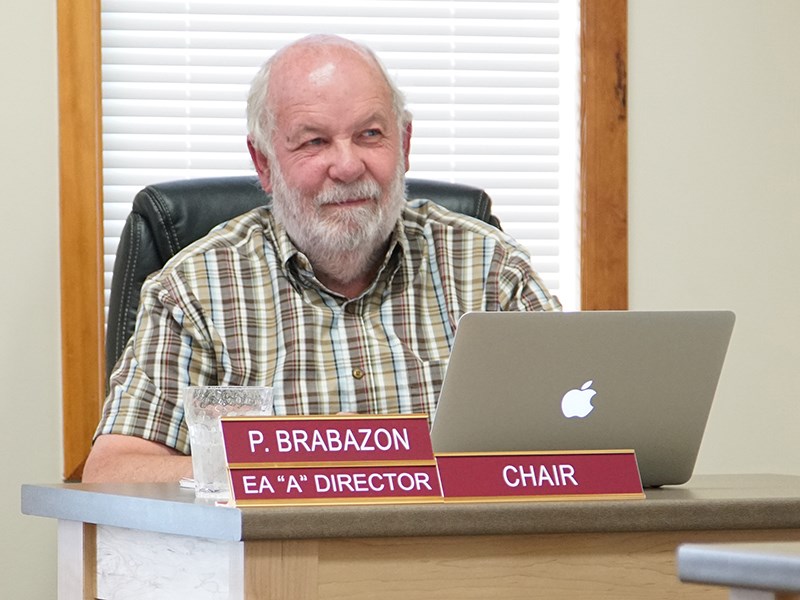qathet Regional District will direct staff to initiate a public engagement process in 2021 to explore pros and cons of land use regulation.
The engagement will apply to electoral areas A, B and C. Options included in the feasibility study land use and development regulatory final report received by the regional board on May 28, 2020, will be taken into consideration.
At the January 28 regional board meeting, Electoral Area B director Mark Gisborne said his understanding is that the regional board had already passed a resolution that this matter would not be discussed until such time as the provincial health officer’s physical distancing orders have been rescinded.
“Unless we actually rescind the previous resolution, or the public health officer’s orders have been alleviated, my understanding is this is out of order,” added Gisborne.
Corporate officer Michelle Jones said at the committee level, membership agreed that motion was in order.
Regional board chair and Electoral Area A director Patrick Brabazon said there was discussion about the public health officer previously. He ruled the motion in order.
Gisborne said he was referring to the motion passed by the board in May 2020, “which was very clear that we would not discuss this until after the public health orders have been rescinded.”
“It’s fine if the member [who raised the motion] would like to rescind that motion, which would then, in my opinion, make this resolution in order,” he added. “However, we’ve got a resolution that’s already been passed that says we wouldn’t discuss it.”
Brabazon said the board had heard Gisborne’s point of order.
“We dealt with it at a recent committee [of the whole] and we passed it,” said Brabazon. “It’s come to the board now for approval and I’m going to rule it in order and the board should deal with it.”
Electoral Area C director Clay Brander said a number of individuals had expressed interest in taking part in the public engagement process, which is positive.
“The more the merrier as far as I am concerned,” added Brander. “The whole idea is to get a good feeling for what the public wants. The motion, as it is, we’re not discussing the issue, per se. We’re discussing whether we are going to get into public engagement.
“We haven’t nailed down a specific date for it. It’s just a matter of getting it on the calendar so we can work it into the planning committee’s budget. I don’t see any problem with the motion as it is.”
Gisborne said the resolution in front of the board didn’t specify the cost, however, he thinks if memory serves, last year, the regional district spent $25,000 getting the study and there was discussion about another $25,000 to conduct the public engagement in electoral areas B and C. He said now that Area A had been added, he expects it would be more than $25,000.
“My understanding is areas B and C did public engagement in relation to increased regulations,” said Gisborne. “The public response was mixed in Area C. The public response in Area B was very much opposed. The only electoral area that has no zoning is, correctly, Area C. We have already spent $25,000 on the study.
“This study from the Arlington Group, in phase two, says to ‘establish development permit areas for previously identified hazard areas.’ There are some who think it’s time we had this conversation about increasing regulations in the electoral areas in the regional district.”
Brabazon said the motion was about whether the regional district holds that conversation. He said Gisborne had gone on at great length about the cost, which was not part of the motion.
Gisborne said this matter is brought up every couple of years and discussed thoroughly every time an official community plan is updated.
“I’m not sure how the community is going to respond, after years of public engagement, that we are going to spend another $50,000 to come back to reeducate them on why they should pay more in taxes to have more regulations and be more restricted,” added Gisborne. “We are asking them the same question we asked in 2019 about development permits and natural hazards. There are some who think if the public doesn’t give us the answer we want we will spend another $50,000 to ask again.”
Brabazon said Gisborne was pulling $50,000 out of thin air. He asked if there was any other director who wished to comment.
Brabazon said he was ruling Gisborne out of order because he strayed from the subject at hand, which was whether or not the regional district should engage the public. He said if Gisborne wished to appeal the order ruling, he could say so.
Gisborne said he wished to appeal the ruling of the chair. Jones said there needed to be a seconder, but Gisborne’s appeal was not seconded, so Brabazon declared it voided.
The directors voted in favour of the motion, with Gisborne opposed.



